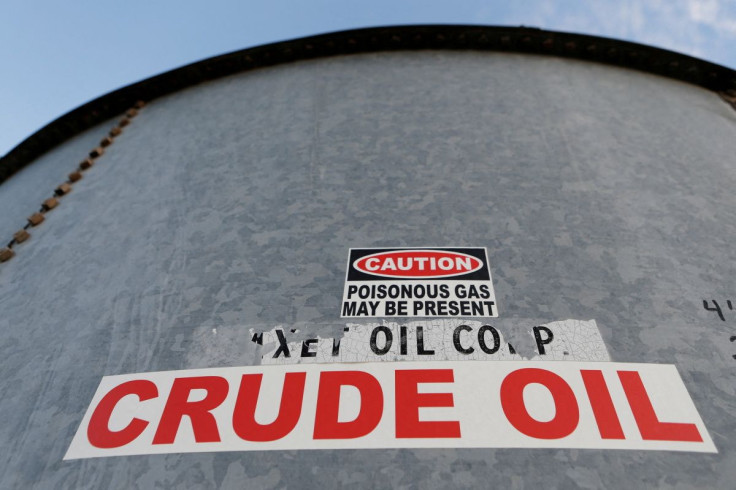Oil Tumbles On Global Economic Worries, Strong Dollar

Oil prices tumbling more than 1% on Tuesday, extending the previous day's steep declines as coronavirus lockdowns in top oil importer China, a strong dollar and growing recession risks fed worries about the outlook for global demand.
Brent crude fell $1.31, or 1.2%, to $104.63 at 0216 GMT after slipping to as low as $103.19.
U.S. West Texas Intermediate crude fell $1.25, or 1.2%, to $101.84 a barrel after hitting an intraday low of $100.44.
On Monday, both benchmarks posted their biggest daily percentage fall since March, dropping by 5% to 6% since March.
The fall in oil prices reflected trends in global financial markets as investors shed riskier assets on worries about higher interest rates and their impact on economic growth.
The dollar held near 20-year highs, making oil more expensive for holders of other currencies.
"China's COVID situation, rising rates and growing recession risks are not helping risk assets," Warren Patterson, head of ING commodities research said.
Latest data showed China's export growth had slowed to single digits, the weakest in almost two years, as the country extended lockdowns to curb the spread of COVID-19.
Oil prices were boosted last week after the European Commission proposed a phased embargo on Russian oil. However, the approval has been delayed amid requests from Eastern European members for exemptions and concessions.
A new version, currently being drafted, is likely to drop a ban on EU tankers carrying Russian oil, after pressure from Greece, Cyprus and Malta, a EU source said.
"Clearly, (EU) members are struggling to come to an agreement, which suggest that we may see a further watering down of the proposed package," Patterson said.
Financial markets are also heeding concerns that some European economies could suffer distress if Russian oil imports were curtailed further, or if Russia were to retaliate by cutting off gas supplies.
German officials are quietly preparing for any sudden halt in Russian gas supplies with an emergency package that could include taking control of critical firms, Reuters reported.
A halt to Russian gas supplies to Germany would trigger a deep recession and cost half a million jobs, a senior economist said in an interview published on Tuesday.
Hungary has also restated its position that it will not accept a new round of proposed sanctions on Russia until its concerns are addressed.
In the United States, U.S. crude, distillates and gasoline inventories likely fell last week, a preliminary Reuters poll of the weekly data showed on Monday.
© Copyright Thomson Reuters 2024. All rights reserved.




















